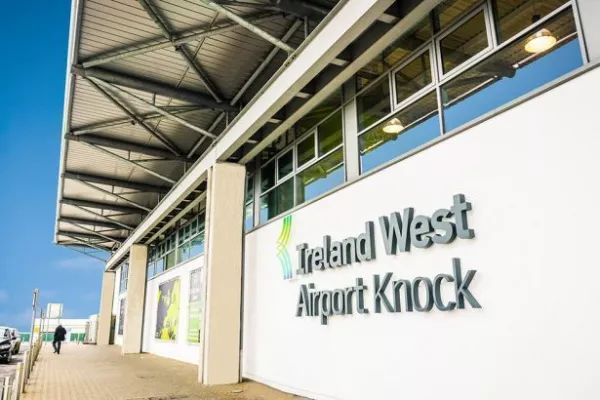Ireland suffered one of the largest air passenger traffic losses in Europe last year, compared to pre-pandemic 2019, according to new data from Airports Council International (ACI) Europe.
EU+ Market
A statement published on ACI-Europe.org noted that airports in Ireland suffered a 74.4% passenger traffic loss in 2021, compared to 2019, which made it one of the countries that suffered the most in the EU+ market last year, compared to 2019, along with Finland, where airports suffered an 80.5% loss; the UK, where airports suffered a 78.1% loss; and Czechia, where airports suffered a 74.8% loss – all of which, ACI Europe noted, was primarily due to travel restrictions.
ACI Europe stated that EU+ market airports experienced a 29.2% year-on-year passenger traffic increase last year, but a 64.6% decrease compared to 2019, with the strongest results compared to 2019 being in Greece, where airports experienced a 46.8% passenger traffic loss; Romania, where airports experienced a 52.7% loss; Luxembourg, where airports experienced a 53.9% loss; Cyprus, where airports experienced a 55.6% loss; Bulgaria, where airports experienced a 55.9% loss; Spain, where airports experienced a 56.4% loss; and Portugal, where airports experienced a 57.9% loss.
Rest Of Europe
According to ACI Europe, airports in the rest of Europe experienced a 59.4% year-on-year passenger traffic increase last year and a 34.4% decrease, compared to 2019, with the strongest results being in Russia, where airports experienced a 24.4% passenger traffic loss, and Armenia, where airports experienced a 29.3% loss, while Israel experienced a 72.9% loss, compared to 2019.
European Airport Network
ACI Europe noted that passenger traffic increased by 37% year on year across the European airport network last year, but decreased by 59%, compared to 2019.
Statement: ACI Europe Director General
A statement published on ACI-Europe.org included another from its director general, Olivier Jankovec, in which he said, “After losing 1.72 billion passengers in 2020, we all had high hopes for a strong recovery in 2021, but last year proved another difficult one, as Europe’s airports ended up losing another 1.4 billion passengers, compared to 2019. This means they remain under considerable stress, with systemic financial weakness across our industry.”
Jankovec also said, “Uncertainties as to the evolution of the pandemic remain significant and limit visibility beyond a few months, at best. For now, the impact of Omicron is still very much on us, as airlines keep pulling out flights and capacity in response to weakened demand in what is already, traditionally, a low season. This means the first quarter will be disappointing, but that we should hopefully see traffic take a better turn as spring approaches. Whether this happens earlier depends on the pace at which travel restrictions can be lifted, now that Omicron is prevalent. A number of countries are moving in that direction, but much more needs to be done.
“Today’s planned adoption by the EU of an updated recommendation for intra-European travel should, in principle, confirm that travel regimes will, at long last, be based on travellers’ health status, rather than their provenance. However, this will be meaningless unless governments finally adhere to the plan and effectively coordinate.”
© 2022 Hospitality Ireland – your source for the latest industry news. Article by Dave Simpson. Click subscribe to sign up for the Hospitality Ireland print edition.









